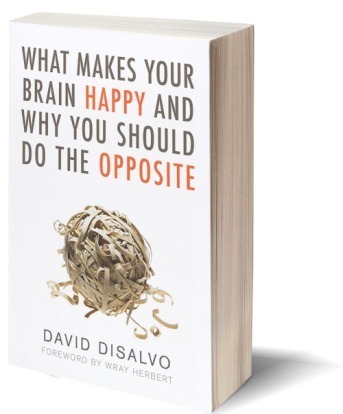Posts Tagged ‘Willpower’
How does mindfulness improve self-control and executive functioning?
We have emotions for a reason. Anger in response to injustice can signal that the situation needs to change; sadness in response to loss can signal that we’d like to keep the people we love in our lives. It’s when we ruminate, or get caught up in our emotions, that they might become maladaptive. That’s when
Read MoreTranscript: David DiSalvo on How Cultural Evolution Outpaces Natural Evolution and Old Brain Metaphors
Below you can find the full transcript of our engaging Q&A session today with David DiSalvo, author of What makes your brain happy and why you should do the opposite, moderated by Alvaro Fernandez. You visit previous Q&A Sessions Here. Full Transcript (Lightly edited) of Live Q&A held on December 9th, 2–3pm ET
Read MoreBrain Development Through Bilingual Education and Activities Requiring Self-Control
How To Help Your Child’s Brain Grow Up Strong (NPR): — “Kids who learn two languages young are better able to learn abstract rules and to reverse rules that they’ve already learned,” says Aamodt. “They’re less likely to have difficulty choosing between conflicting possibilities when there are two possible responses that both present themselves. They’re…
Read MoreWho Says This is The Classroom of the Future?
The New York Times has recently published several very good and seemingly unrelated articles…let’s try and connect some dots. What if we questioned the very premise behind naming some classrooms the “classrooms of the future” simply because they have been adding technology in literally mindless ways? What if the Education of the Future (sometimes also…
Read MoreUpdate: Public Libraries as Health Clubs for the Brain
Here you have the July edition of our monthly newsletter covering cognitive health and brain fitness topics. Please remember that you can subscribe to receive this Newsletter by email, using the box at the top of this page. Public libraries have long offered the public more than books. And now, recent demographic and scientific trends are…
Read MoreDaniel Goleman: Yes, You Can Build Willpower (meditate on neuroplasticity!)
(Editor’s note: Daniel Goleman is now conducting a series of audio interviews including a great one with Richard Davidson on Training the Brain. We are honored to bring you this guest post by Daniel Goleman, thanks to our collaboration with Greater Good Magazine.) — Yes, You Can: New research suggests we can build our willpower –…
Read More



